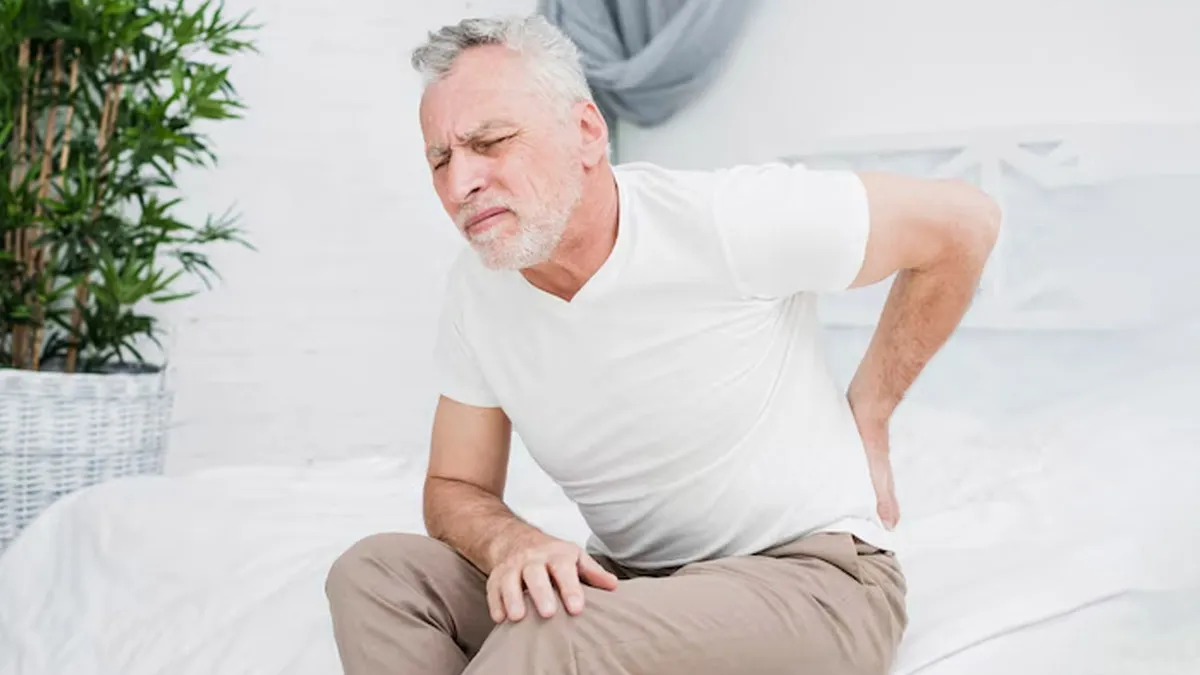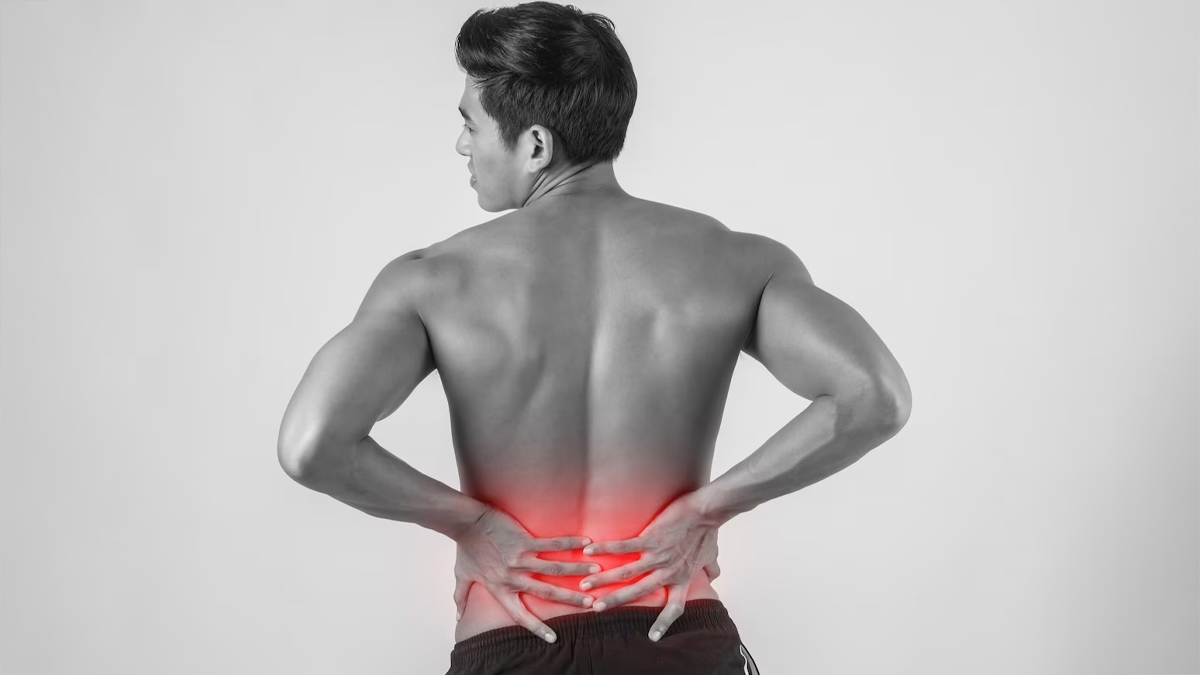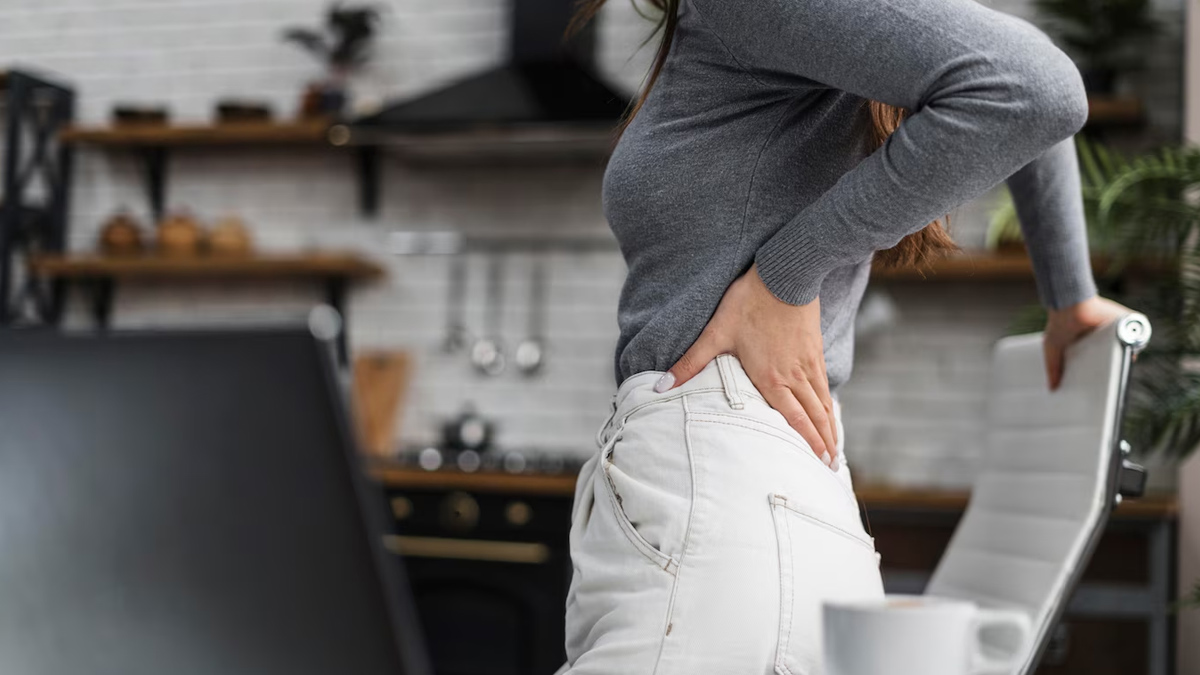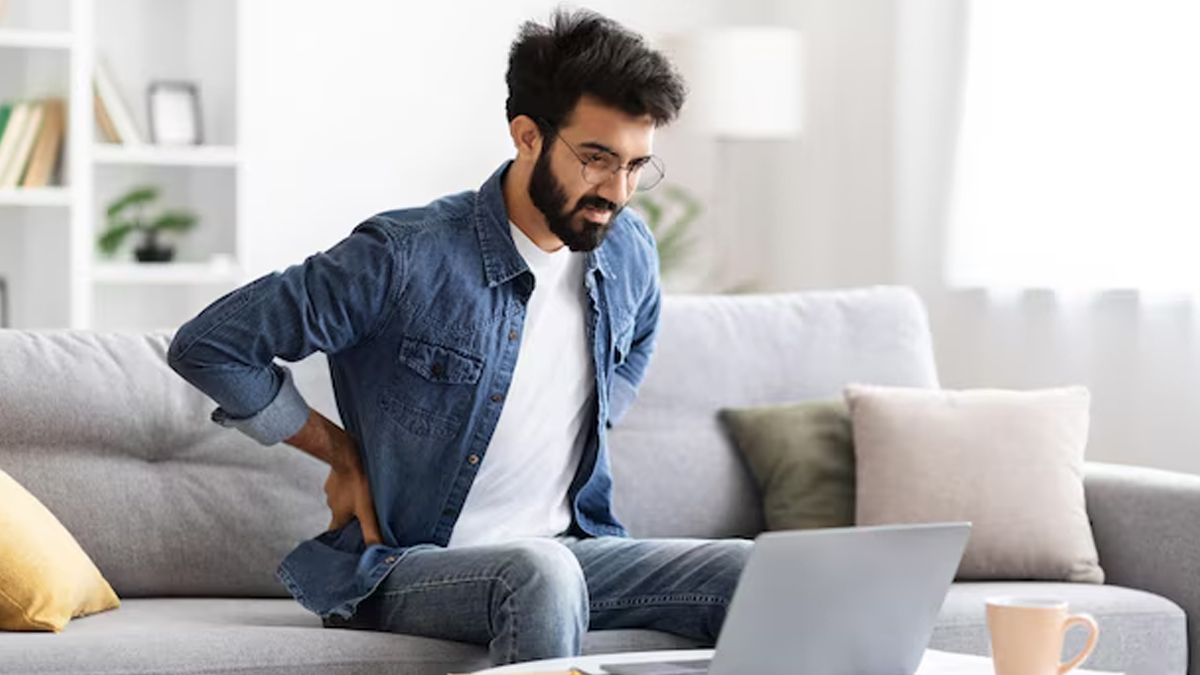
Hip pain can occur at any age and can be triggered by various reasons—from joint wear and tear in older adults to muscle strain or overuse injuries in younger people.
Dr Kalaivanan Kanniyan, Senior Consultant – Orthopaedics, the Asian Joint Reconstruction Institute, SIMS Hospital, Chennai, breaks down the causes, daily habits to avoid, and safe practices to help manage hip pain better.
Table of Content:-
Also Read: Is Sitting Cross-Legged Normal or Harmful? What You Need to Know
What’s Causing Your Hip Pain?

Dr Kanniyan explains that for older adults, hip pain is most commonly caused by osteoarthritis, a condition that occurs due to the natural wear and tear of the joints.
On the other hand, younger people might experience hip pain due to issues like muscle strain, labral tears, or hip impingement from overuse. In some cases, inflammation of the tendons or bursa, especially in women, may lead to persistent discomfort.
Other causes can include inflammatory arthritis, spine-related problems, or even pelvic inflammatory disease, which can manifest as pain in the hip area.
Things You Should Avoid Doing
When you’re dealing with hip pain, trying to push through it can actually make things worse. Dr Kanniyan advises against continuing strenuous activities like long walks, climbing stairs, or running.
Moreover, ignoring the pain or self-medicating with Over-the-Counter (OTC) painkillers without a proper diagnosis may delay appropriate treatment. Instead, rest is crucial. “crucial. Give your hip the time it needs to heal, maintain correct posture, and consult an orthopaedic doctor early on to understand the root cause of your pain,” says Dr Kanniyan.
Everyday Habits That Can Worsen The Pain

Some of your usual movements and postures may be silently contributing to your discomfort. For example, sitting cross-legged, frequently climbing stairs, or doing deep squats can increase the strain on your hip joint.
High-impact workouts like running or jumping can also aggravate the pain if done excessively. Even your sleeping position matters—lying on your side without proper support between the knees can put uneven pressure on the hips and worsen the issue over time.
Gentle Exercises That May Help

Certain low-impact exercises and stretches can actually support your recovery if done carefully.
Dr Kanniyan recommends starting with a hip flexor stretch, where you kneel and gently lean forward to stretch the front of your hip. Another useful movement is the figure-4 stretch: lie on your back, cross one ankle over the opposite thigh, and pull the lower leg gently toward your chest.
Side leg raises, done while lying on your side, can help build strength in the hip muscles.
Remember, these exercises should be done slowly and should not cause additional pain. If they do, it’s a sign to stop.
Also Read: Possible Causes Of Hip Pain In Women (With Remedies)
When To Stop Home Remedies And See A Doctor
It’s important not to delay medical attention if the pain doesn’t subside with rest. According to Dr Kanniyan, you should consult a doctor if your hip pain lasts more than two weeks, interferes with your sleep, or makes daily activities difficult.
Warning signs such as swelling, redness, fever, or a sudden onset of pain after a fall should not be ignored. These could indicate a more serious underlying issue. A clinical examination, along with imaging tests like an X-ray or MRI, may be needed to get to the root of the problem.
Hip pain can be manageable with timely care, mindful movement, and medical guidance. If your discomfort is persistent or getting worse, it’s best not to wait—your hips carry your body’s weight every day, and keeping them healthy is key to your overall mobility.
Also watch this video
How we keep this article up to date:
We work with experts and keep a close eye on the latest in health and wellness. Whenever there is a new research or helpful information, we update our articles with accurate and useful advice.
Current Version